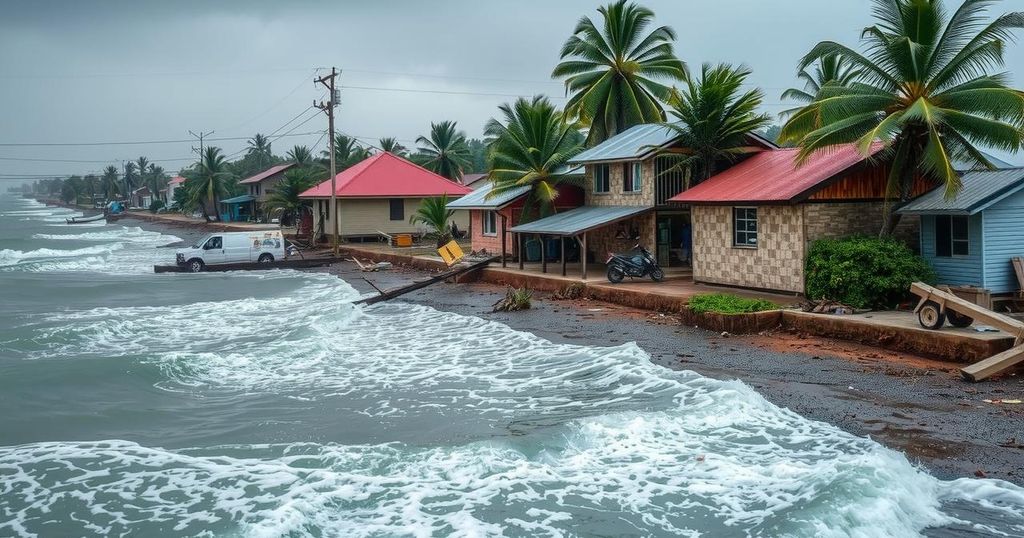Cyclone Chido has led to 120 fatalities and 868 injuries in northern Mozambique, affecting over 680,000 individuals. The cyclone, which hit on December 15, resulted in extensive damage with more than 140,000 homes destroyed and 250 schools impacted. Emergency shelters have been set up for the displaced, highlighting the critical need for support and resilient infrastructure in the face of climate change.
On December 24, the death toll from Cyclone Chido in Mozambique has tragically increased to 120, accompanied by 868 injuries and over 680,000 individuals severely affected, according to the latest reports from Mozambique’s National Disaster Relief Agency (INGD). The cyclone, which struck on December 15, caused significant destruction across the northern provinces including Cabo Delgado, Nampula, and Niassa, with catastrophic rainfall and storms leading to extensive flooding.
The INGD reported that Cyclone Chido has impacted approximately 123,000 families, translating to over 622,610 individuals, with broken infrastructure such as more than 140,000 homes either partially or entirely demolished. The devastation extends to 250 schools, 89 public facilities, and 52 healthcare establishments, affecting nearly 110,000 students.
In response to the emergency, the government has established two shelters that currently accommodate 1,349 displaced individuals, as reported by Xinhua. The INGD’s social media updates have underscored the cyclone’s detrimental effects on education and health, noting, “The Cyclone Chido once again highlights the vulnerability of social infrastructure to climate change and the need for resilient planning to mitigate future impacts.” The cyclone, which originated as a tropical depression on December 5, has prompted ongoing appeals for humanitarian assistance from authorities and international organizations to meet the immediate needs of those affected.
Tropical cyclones are significant weather events characterized by low atmospheric pressure and high wind speeds, which can lead to severe loss of life and infrastructure damage. Cyclone Chido developed over the southwestern Indian Ocean and gained strength before striking northern Mozambique, a region already vulnerable to climate-related disasters. The cyclone follows patterns of increasing intensity often linked to climate change, making effective disaster preparedness and response essential for safeguarding affected communities.
In conclusion, Cyclone Chido has caused considerable destruction in northern Mozambique, with a rising death toll and thousands of families displaced. The urgency for humanitarian support is paramount as the affected regions work to rebuild and recover from the disaster. The impact on vital sectors such as education and health reinforces the pressing need for resilient infrastructure development to mitigate future disasters.
Original Source: www.socialnews.xyz






